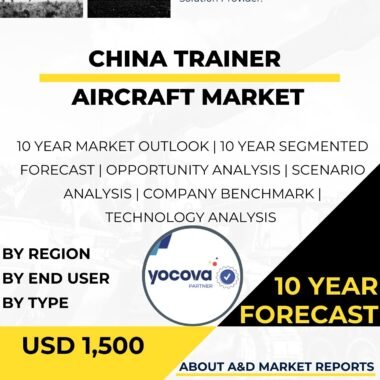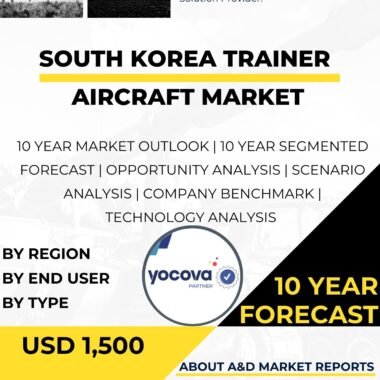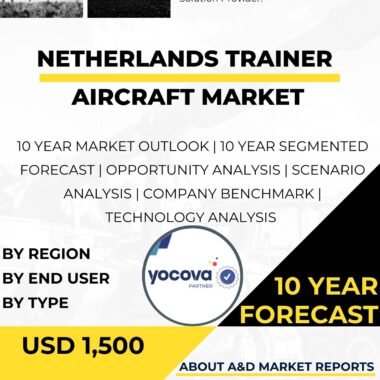Description
The Belgium trainer aircraft market is an essential segment within the country’s defense and aerospace industries. Trainer aircraft play a crucial role in the training and development of military pilots, providing them with the necessary skills and experience to operate advanced combat aircraft. Belgium recognizes the importance of modern and capable trainer aircraft in enhancing its defense capabilities, maintaining a skilled pilot force, and ensuring operational readiness.
The primary driver for the Belgium trainer aircraft market is the need for effective pilot training. Trainer aircraft serve as a stepping stone for aspiring military pilots, allowing them to gain proficiency in flight maneuvers, instrument flying, tactical operations, and emergency procedures. These aircraft provide a safe and controlled environment for trainees to develop their aviation skills before transitioning to more advanced platforms. Belgium’s focus on trainer aircraft is driven by the need to enhance its defense capabilities, support its air force, and ensure a well-trained and competent pilot force.
Belgium’s domestic defense and aerospace industries play a significant role in the development, production, and integration of trainer aircraft. Belgian companies, such as SABCA and Sonaca, have expertise in aircraft manufacturing and contribute to the country’s defense capabilities. These domestic capabilities foster innovation, create job opportunities, and contribute to the economic growth of the Belgium trainer aircraft market.
Collaborations with international partners and suppliers are also significant for the Belgium trainer aircraft market. Belgium often engages in partnerships with defense and aerospace companies from NATO member states and other allied nations to access advanced trainer aircraft technologies, benefit from joint development programs, and ensure interoperability with allied forces. These collaborations enable Belgium to leverage global advancements in trainer aircraft capabilities, enhancing the performance, reliability, and effectiveness of its pilot training programs.
Furthermore, Belgium’s participation in multinational defense initiatives influences the trainer aircraft market. Collaboration within NATO and other international defense cooperation programs fosters interoperability, joint training exercises, and the exchange of best practices. This cooperation ensures compatibility and enhances operational effectiveness when conducting joint military operations with allied forces.
The Belgium trainer aircraft market faces challenges such as technological advancements, training capacity, and cost-effectiveness. Technological advancements in trainer aircraft, including advanced avionics, digital cockpit displays, and simulation capabilities, require continuous research and development efforts. The Belgium market needs to stay at the forefront of innovation to provide state-of-the-art trainer aircraft that meet the evolving training requirements and address emerging aviation technologies.
Training capacity is a crucial consideration in the trainer aircraft market. Belgium’s defense industry must ensure sufficient availability of trainer aircraft to meet the demands of pilot training programs. Adequate training capacity ensures that a steady pipeline of skilled pilots is maintained to support the operational requirements of the air force.
Cost-effectiveness is an important consideration in the acquisition and operation of trainer aircraft. Belgium’s defense industry must carefully manage budgets and allocate resources prudently. The cost of acquiring, maintaining, and sustaining trainer aircraft should be balanced against the need for performance, reliability, and the overall cost of pilot training programs, ensuring a cost-effective approach without compromising training quality.
In conclusion, the Belgium trainer aircraft market is an essential segment within the country’s defense and aerospace industries. Advanced trainer aircraft provide critical capabilities for pilot training, skill development, and operational readiness. Domestic capabilities, collaborations with international partners, and Belgium’s participation in multinational defense initiatives drive the growth and development of the trainer aircraft market. As training requirements evolve and technological advancements continue, the demand for modern and capable trainer aircraft is expected to increase, fostering innovation, collaboration, and economic growth within the sector.




